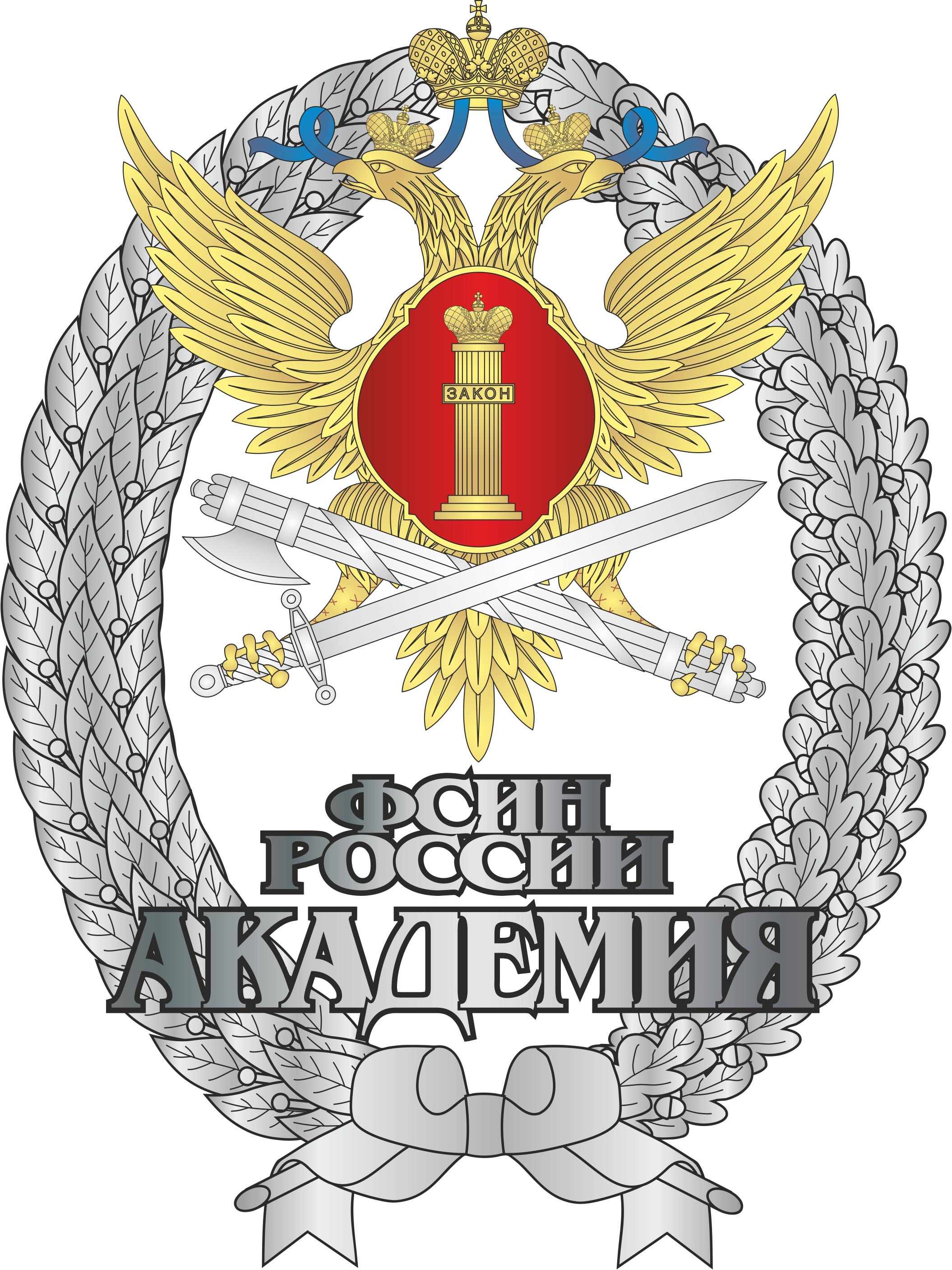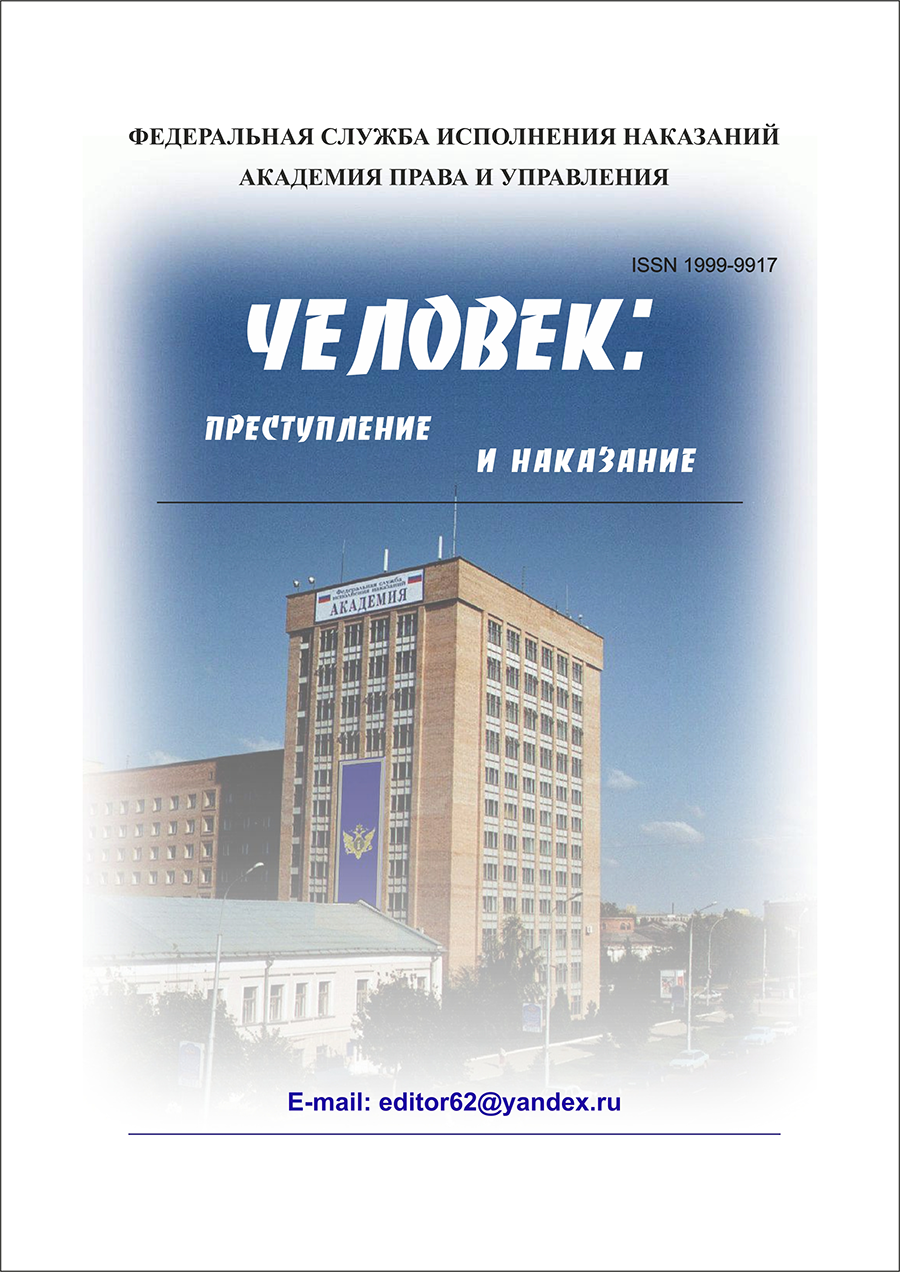Ryazan', Russian Federation
UDC 34
Institutes of parole and probation can achieve the goals of punishment. For example, when a convict has voluntarily compensated the damage caused to the victim, it proves the restoration of social justice. The legislator relates probation directly to the purpose of correction of a condemned person. So, in part 1 of article 73 of the Criminal code of the Russian Federation the legislator stipulates that the court shall appoint probation if it comes to conclusion about possibility of correction of a condemned without real sentence serving. So, the possibility to achieve the goal of correction is the important condition of probation.By imposing parole, it is possible to achieve the goal of punishing of occasional offender, as well as eliminating of harmful consequences that may occur during the real execution of the punishment in the form of deprivation of liberty. Imposition of parole for convicts doesn’t mean their release from their usual environment and loss of work.The legislator associates the parole with reformation of the condemned. The essence of punishment is to penalize, as the condemned persons who sentenced to the same penalty cannot be reformed to the same extent. This contradicts the meaning of correction as an individualized process. Corrective action is not the part of punishment and cannot be achieved by penalty. The decision to apply parole must be balanced and reasonable, as earlier release of a convict from the penal institution takes place. The court’s decision must be based on facts that can predict the further law-abiding behavior of a released person.The statement of part 1 Article 79 of the Criminal code of the Russian Federation, that fullterm serving of the sentence imposed by the court is not necessary for the reformation of aperson, is not absolutely correct as correctional criteria are not clearly defined. The executor of law faces the problems when interpreting the notion “correction”. Therefore it is proposed to replace the term “correction” with “prediction of law-abiding behavior”, as it is done in the penal codes of Switzerland and Austria. These changes should contribute to the improvement of the institution, as in the application of parole the courts will be focused on prediction of the law-abiding behavior of the convicted person after his release from further sentence serving.
punishment, measure of criminal law, parole, exemption from criminal responsibility, probation, condemned, crime prevention, reformation of convicts, rectification of an injustice, preventive measures
1. Belyaev N. A. Ugolovno-pravovaya politika i puti ee realizacii. L., 1986. 176 s
2. Karpec I. I. Nakazanie: social'nye, pravovye i kriminologicheskie problemy. M., 1973. 287 s
3. Chuchaev A. A. Celi nakazaniya v sovetskom ugolovnom prave. M., 1989. 22 s
4. Velive S. A. Principy naznacheniya nakazaniya. SPb., 2005. 386 s
5. Stanovskiy M. N. Naznachenie nakazaniya. SPb., 1999. 480 s
6. Kashuba Yu. A., Skiba A. P. Institut uslovno-dosrochnogo osvobozhdeniya: novyy vzglyad // Chelovek: prestuplenie i nakazanie. 2011. № 1. S. 14-17
7. Babayan S. L. Nekotorye voprosy primeneniya mezhotraslevogo pooschritel'nogo instituta uslovno-dosrochnogo osvobozhdeniya ot otbyvaniya nakazaniya // Chelovek: prestuplenie i nakazanie. 2012. № 3. S. 35-39
8. Kommentariy k Ugolovno-ispolnitel'nomu kodeksu Rossiyskoy Federacii / pod red. A. I. Zubkova. M., 2001. 256 s
9. Kommentariy k Ugolovnomu kodeksu Rossiyskoy Federacii / pod obsch. red. Yu. I. Skuratova, V. M. Lebedeva. 3-e izd., izm. i dop. M., 2002. 804 s
10. Gilinskiy Ya. I. Globalizaciya prestupnosti i social'nogo kontrolya // Nauchnye osnovy ugolovnogo prava i processy globalizacii : materialy V Rossiyskogo kongressa ugolovnogo prava. M., 2010. S. 482-486
11. Natashev A. E. Nepriemlemost' «progressivnoy sistemy» otbytiya lisheniya svobody // Problemy razvitiya sovetskogo ispravitel'no-trudovogo zakonodatel'stva. Saratov, 1961. S. 246-247
12. Struchkov N. A. Pravovoe regulirovanie ispolneniya nakazaniya (osnovnye problemy sovetskogo ispravitel'no-trudovogo prava) : avtoref. dis. … d-ra yurid. nauk. M., 1963. 36 s
13. Noy I. S. Suschnost' i funkcii ugolovnogo nakazaniya v Sovetskom gosudarstve. Saratov, 1973. 192 s
14. Scherbakov S. V. Recidivnaya prestupnost': kriminologicheskaya harakteristika i problemy preduprezhdeniya : avtoref. dis. ... kand. yurid. nauk. M., 2009. 26 s
15. Komarickiy S. I. Nakazaniya, ne svyazannye s lisheniem svobody, i administrativnyy nadzor: social'noe naznachenie i pravovye sredstva realizacii // Primenenie nakazaniy, ne svyazannyh s lisheniem svobody : sb. nauch. tr. M., 1989. S. 3-19
16. Mickevich A. F. Ugolovnoe nakazanie. SPb., 2005. 329 s
17. Timashev N. S. Uslovnoe osuzhdenie. SPb., 1914. 347 s









